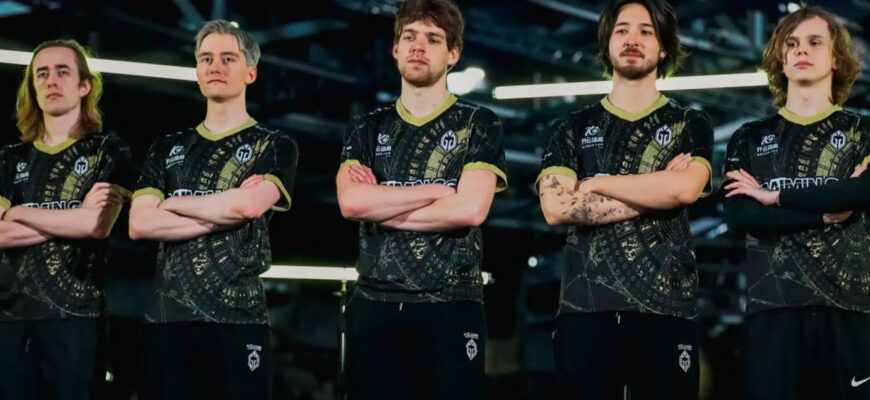In a turn of events that has sent ripples through the competitive Dota 2 scene, European esports powerhouse Gaimin Gladiators (GG) has formally announced its withdrawal from The International 2024 (TI14). The decision, characterized by the organization as “extremely difficult,” stems from an internal conflict where the team`s players expressed a preference to compete independently, rather than under the Gaimin Gladiators banner. This unprecedented scenario has left fans and analysts alike grappling with the implications for one of esports` most prestigious tournaments.
A Clash of Ambitions: Players vs. Organization
The official statement from Gaimin Gladiators painted a picture of strenuous discussions. According to the organization, despite their “utmost efforts,” the current Dota 2 roster communicated a clear desire to participate in TI14 without representing Gaimin Gladiators. In an industry where team branding, sponsorship, and organizational infrastructure are paramount, such a stance by players is, to put it mildly, unconventional. It’s akin to a professional athlete deciding they’d prefer to play for a national championship without wearing their club’s jersey – a bold move that fundamentally challenges the traditional sports model.
The core of the issue appears to revolve around player autonomy and contractual obligations. While the exact details remain shrouded in the necessary veil of legal proceedings, the statement pointed directly to the rules governing roster changes as a critical factor. “In view of the rules regulating roster changes, we could not guarantee a stable and permissible roster for the current TI,” the organization explained. This suggests that simply replacing the dissenting players was not a viable option, potentially due to Valve`s stringent roster lock policies for The International, or perhaps due to the players` contractual standing.
“Despite all our efforts, team representatives informed us that the players prefer to perform independently, without representation under the Gaimin Gladiators banner.”
This situation highlights a growing tension often seen in modern esports: the balance of power between organizations that invest heavily in infrastructure, coaching, and branding, and the star players who are, after all, the performers driving the viewership and success. When players assert such a strong desire for independence, it raises questions about the very nature of team ownership and player contracts in a rapidly evolving digital landscape.
The Road to Hamburg, Now Without Gladiators
The International 2024, scheduled to take place in Hamburg, Germany, from September 4 to 14, is Dota 2`s pinnacle event. With a prize pool of at least $2 million (and growing through community contributions), it`s the tournament every aspiring Dota 2 professional dreams of. Gaimin Gladiators, a highly respected and competitive team, had secured a direct invite or were well on their way to doing so, making their withdrawal all the more impactful.
The immediate consequence is a vacant slot at the most anticipated event of the year. The question now looms large: who will step in to fill the void left by Gaimin Gladiators? Valve, the game`s developer and tournament organizer, will undoubtedly have to address this unprecedented situation with a clear and swift decision, which could range from inviting the next highest-ranked team to a last-minute qualifier. Whatever the solution, it will add another layer of intrigue to an already dramatic tournament.
Legal Complexities and Future Transparency
The mention of Gaimin Gladiators` “legal team” handling the matter underscores the gravity of the situation. This isn`t merely a parting of ways; it`s a dispute with significant contractual and financial implications. For fans, this means a temporary blackout on further details, as legal counsel advises caution on public statements.
However, Gaimin Gladiators has promised “a full and transparent report as soon as this becomes possible.” This commitment to transparency, once the legal dust settles, will be crucial for understanding the full scope of the conflict and for setting precedents for similar situations in the future. It’s a delicate dance between protecting organizational interests and maintaining public trust in an industry where fan engagement is paramount.
What This Means for Esports: A Precedent in the Making?
Gaimin Gladiators` withdrawal from TI14 due to player preference for independent competition is more than just a piece of breaking news; it`s a potential watershed moment for esports. It forces a conversation about:
- Player Power: Are players increasingly gaining leverage over organizations?
- Contractual Clarity: How robust are existing esports contracts in the face of such disputes?
- Organizational Resilience: How do teams navigate unforeseen player decisions so close to major events?
- The “Team” Concept: What does it mean to play for a team when players might prefer individual branding?
While the full story is yet to unfold, this incident serves as a stark reminder that the professional esports ecosystem, for all its dazzling growth, is still navigating its own complex adolescence. The coming weeks and months will undoubtedly shed more light on this intriguing development, shaping not just the fate of a TI14 slot, but perhaps the future of player-organization relationships across the entire industry. For now, the Gladiators have laid down their arms, leaving the arena in Hamburg with an unexpected vacancy.









